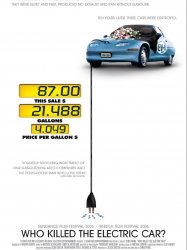Sur la route du Gange is a french film of genre Documentary directed by Olivier Weber
Sur la route du Gange (2003)

If you like this film, let us know!
Sur la route du Gange (Along the road of Ganges) est un film documentaire de l'écrivain et grand reporter Olivier Weber et de Frédéric Vassort de 2003. Sélectionné dans plusieurs festivals internationaux, il a reçu le Prix du Public et le Prix de l'Image du Festival International du Grand Reportage d'Actualité (FIGRA) 2004.
Comments
Leave comment :
Suggestions of similar film to Sur la route du Gange
There are 2 films with the same director, 8965 with the same cinematographic genres, 8083 films with the same themes (including 0 films with the same 7 themes than Sur la route du Gange), to have finally 70 suggestions of similar films.If you liked Sur la route du Gange, you will probably like those similar films :

Cursed for Gold (2008)
, 1h33Directed by Olivier Weber
Origin France
Genres Documentary
Themes Environmental films, La mondialisation, Films about the labor movement, Documentary films about business, Documentaire sur l'altermondialisme, Documentary films about environmental issues, Documentaire sur le monde du travail, Documentary films about nature, L'Or

L'Opium des talibans (2001)
, 1h32Directed by François Margolin, Olivier Weber
Origin France
Genres Documentary
Themes Films about religion, Films about Islam

Roger & Me (1989)
, 1h31Directed by Michael Moore
Origin USA
Genres Comedy, Documentary, Historical
Themes Politique, Transport films, Films about the labor movement, Films about automobiles, Documentary films about business, Documentary films about politics, Documentary films about technology, Documentaire sur le monde du travail, Political films, Road movies
Actors Michael Moore, Ronald Reagan, Guy Williams, Pat Boone
Rating74%





Michael Moore begins by introducing himself and his family through 8 mm archival home movies; he describes himself as the Irish American Catholic middle-class son of a General Motors employee assembling AC spark plugs. Moore chronicles how GM had previously defined his childhood in Flint, Michigan, and how the company was the primary economic and social hub of the town. He points out that Flint is the place where the Flint Sit-Down Strike occurred, resulting in the birth of the United Auto Workers. He reveals that his heroes were the Flint natives who had escaped the oppressive life in GM's factories, including "Flint's most famous native son," game show host Bob Eubanks.

Who Killed the Electric Car? (2006)
, 1h32Origin USA
Genres Documentary
Themes Environmental films, Transport films, Films about automobiles, Documentary films about business, Documentary films about environmental issues, Documentary films about technology, Road movies
Actors Tom Hanks, Martin Sheen, Mel Gibson, Ed Begley Jr., Phyllis Diller
Rating75%





Au début des années 2000, plusieurs modèles de voitures électriques étaient en circulation en Californie, dont l'EV1, produite par General Motors et mise en location à long terme, puis retirée du marché en 2006. Ce documentaire retrace la mort prématurée de ce véhicule et enquête sur l'importance des lobbies du pétrole dans l'état de Californie.

Taken for a Ride (1996)
, 55minutesOrigin USA
Genres Documentary
Themes Environmental films, Transport films, Films about automobiles, Rail transport films, Documentary films about business, Documentary films about environmental issues, Documentary films about technology, Road movies
Rating78%





Taken for a Ride begins with interviews on the inefficiencies and congestion on Los Angeles' highways. Next, the film displays a variety of archival footage on streetcar systems around the United States, demonstrating that streetcars were a widespread and efficient means of transportation. The film continues into a description of the General Motors streetcar conspiracy, starting with a history of National City Lines and Pacific City Lines and General Motors' investment in both companies. The film builds the argument that streetcar systems purchased by these companies were deliberately sabotaged through service reductions and fare increases, then replaced with profitable, less convenient, bus systems. Next, the film makes a connection between this conspiracy and the construction of the Interstate Highway System and the suburbanization of America in the face of the Highway revolts in the 1960s and 1970s. The film ends with footage of the reduction of Philadelphia's trolleybus system at the time of filming.

What is the Electric Car? (2010)
Origin USA
Genres Documentary
Themes Environmental films, Transport films, Films about automobiles, Documentary films about environmental issues, Documentary films about technology, Road movies
Actors Fabio Lanzoni, Alexandra Paul, Ed Begley Jr.
Rating71%






We Feed the World (2005)
, 1h36Directed by Erwin Wagenhofer
Origin Austria
Genres Documentary
Themes Cooking films, Environmental films, La mondialisation, Films about the labor movement, Documentaire sur la cuisine, Documentary films about business, Documentaire sur l'altermondialisme, Documentary films about environmental issues, Documentaire sur la malbouffe, Documentaire sur le monde paysan, Documentary films about health care, Documentaire sur le monde du travail
Rating74%





Avec We Feed the World, le documentariste Erwin Wagenhofer propose aux spectateurs un regard sur l'agriculture mondiale moderne. En passant par la Roumanie, l'Autriche, le Brésil, la France et l'Espagne, son enquête se focalise sur la manière dont est fabriqué ce qui arrive dans notre assiette. Il montre que la domination du Nord sur le Sud est prégnante. Comment est-il possible qu'en Afrique l'on achète des produits européens ou asiatiques comme le poulet thaïlandais ? Le réalisateur présente une face peu connue de la mondialisation : en achetant un poulet industriel, on contribue au défrichement de l'Amazonie car le Brésil déforeste pour cultiver le soja qui sert à nourrir les volailles élevées en batterie (90 % de la production de soja du Brésil est exportée). Le documentaire souligne également la différence entre industrie agroalimentaire et petite exploitation. We Feed the World adopte un style « coup de poing » visant à éveiller les consciences.

Bovines (2012)
Directed by Emmanuel Gras
Origin France
Genres Documentary
Themes Films about animals, Environmental films, Films about the labor movement, Documentaire animalier, Documentary films about environmental issues, Documentaire sur le monde du travail, Films about cows, Documentary films about nature, Mise en scène d'un mammifère
Rating66%





Film documentaire sur la vie des vaches, dans leur champ, sous la pluie, au soleil...

Darwin's Nightmare (2005)
, 1h50Origin France
Genres Documentary
Themes Films set in Africa, Films about animals, Cooking films, Environmental films, La mondialisation, Films about the labor movement, Documentaire sur l'altermondialisme, Documentary films about environmental issues, Documentaire sur le monde du travail, Mise en scène d'un poisson
Rating73%





Les rives du plus grand lac tropical du monde, considéré comme le berceau de l'humanité, sont aujourd'hui le théâtre du pire cauchemar de la mondialisation.En Tanzanie, dans les années 60, la Perche du Nil, un prédateur vorace, fut introduite dans le lac Victoria à titre d'expérience scientifique. Depuis, pratiquement toutes les populations de poissons indigènes ont été décimées. De cette catastrophe écologique est née une industrie fructueuse, puisque la chair blanche de l'énorme poisson est exportée avec succès dans tout l'hémisphère nord.Pêcheurs, politiciens, pilotes russes, industriels et commissaires européens y sont les acteurs d'un drame qui dépasse les frontières du pays africain. Dans le ciel, en effet, d'immenses avions-cargos de l'ex-URSS forment un ballet incessant au-dessus du lac, ouvrant ainsi la porte à un tout autre commerce vers le sud : celui des armes.
 , 1h37
, 1h37Directed by Fernando Solanas
Origin Argentine
Genres Documentary
Themes Environmental films, Films about the labor movement, Documentary films about environmental issues, Documentary films about health care, Documentaire sur le monde du travail
Rating62%





Fernando Solanas voyage au travers de l'Argentine et nous dresse un bilan des méfaits de la monoculture du soja OGM sur l'environnement et l'impact de l'utilisation intensive des agrotoxiques sur la santé des habitants des zones agricoles.
 Connection
Connection